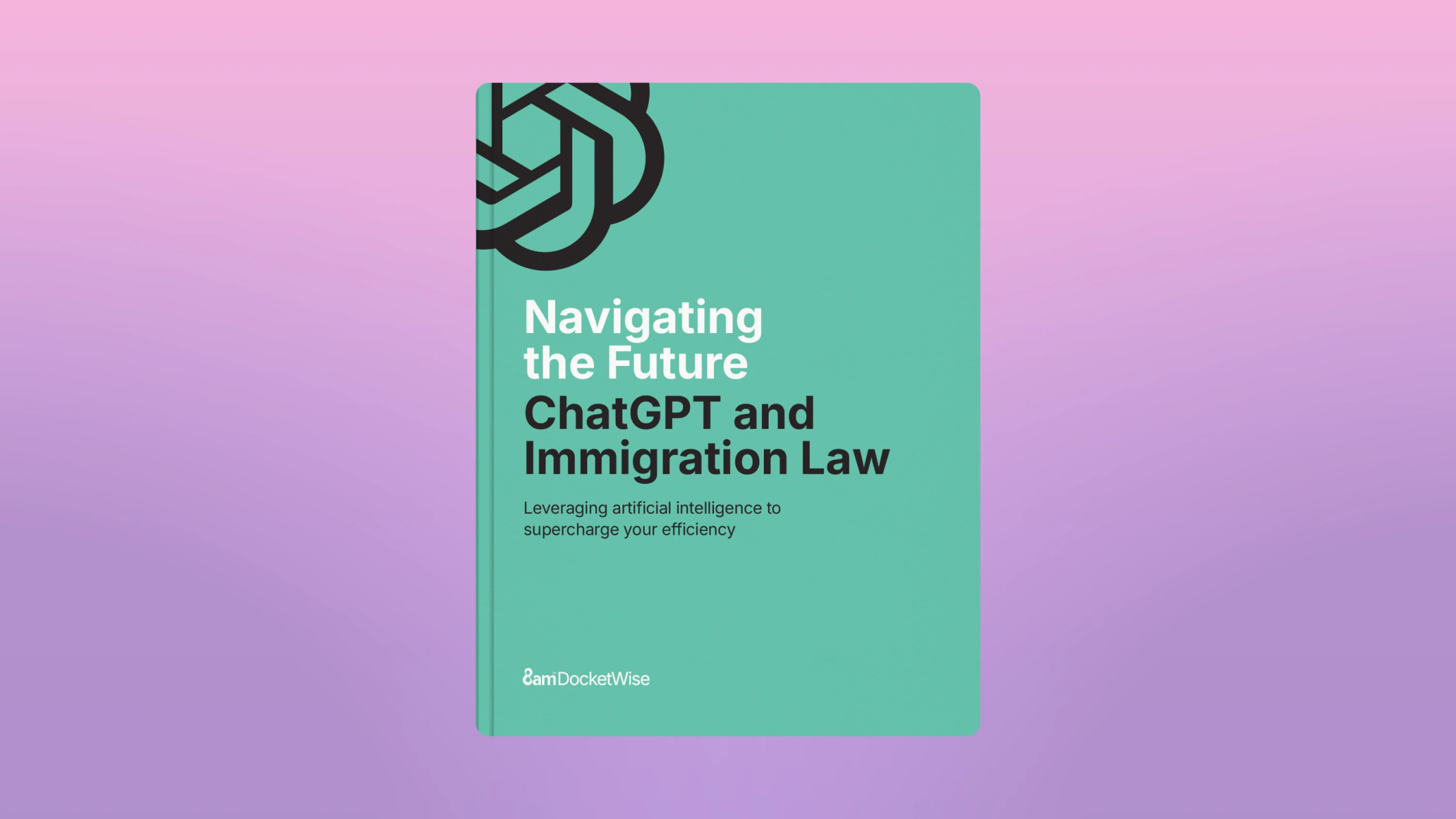Immigration and the United States of America seem to go hand in hand. When foreigners successfully immigrate to our country, they help create more jobs, fill labor gaps, spend money on housing and transportation, and pay taxes. In other words, there’s no way around the fact that skilled immigrants significantly contribute to our country and especially its economy, which is why an area of law was put into place to create guidelines, standards, and policies for immigration.
The U.S. immigration law includes different rules, procedures, and regulations that govern the legal immigration services and processes for those coming into the States until they obtain the status of a permanent resident. This type of law ensures that the various participants in each immigration case do their jobs correctly and according to the legislation. It also outlines the eligibility requirements of who and under which circumstances can enter and stay in the States.

The immigration law story began in the 19th century with the Plenary Power Doctrine, which entitled the political branches—both executive and legislative—to hold the sole power to regulate all possible aspects of the new process called immigration. Ever since then, immigration law changes are relatively frequent which makes it all more difficult for both immigration legal services providers and their respective clients to keep up with the latest sets of regulations and changes in US immigration policy.
Nowadays, when the pace, nuance, and volume of immigration regulatory change is truly staggering, the nonstop tide of immigration law changes can be overwhelming for all parties concerned.
For example, if you’re an immigration legal services provider yourself, in one moment, you could be up to date with all the latest rules and news regarding your area of expertise. But, the next day, everything could become uprooted by a newly adopted, approved, or amended immigration regulation. Or, if you’re falling under the international students or temporary workers categories, the process of relocation to a new, foreign country without being up-to-date with the latest regulatory rules and the most recent immigration law changes could only add to the stress that comes with the fresh life start.

As you can tell, regardless of whether you find yourself in the comprehensive and rather complicated U.S. immigration ecosystem, finding ways to stay on top of all immigration law changes and changes in US immigration policy is crucial to ensure that you’re well-equipped with knowledge well before you start working with an actual client or you apply for an immigrant visa.
To make things easier for you, in this blog post, we’ll outline the best ways to keep up with the frequent immigration law changes you should be aware of in 2023 and beyond.
Keeping Up With Immigration Law Changes
Regularly Read Through All Regulatory Agency Websites
Staying up-to-date with immigration law changes is essential for individuals and organizations that work with foreign nationals or seek to bring foreign talent to the United States. And in order to keep track of changes in immigration law, it is advisable to regularly check the websites of relevant branches of government agencies that regulate immigration. These agencies include the U.S. Citizenship and Immigration Services (USCIS), the Department of State (DOS), and the Department of Labor (DOL).

USCIS administers immigration benefits and services, such as processing visa applications, granting permanent residency, and issuing employment authorization documents. DOS oversees the visa application process and manages U.S. embassies and consulates abroad. Finally, DOL ensures that U.S. workers are protected and that each foreign skilled worker is not exploited through labor certification processes.
In addition to these agencies, other government departments and agencies may also play a role in immigration law, such as the Department of Homeland Security (DHS), the Department of Justice (DOJ), and the Department of Health and Human Services (HHS). These agencies are responsible for enforcing immigration laws and regulations, conducting investigations, and providing support services to immigrants, asylum seekers, and refugees.
Using an RSS feed reader can also help track changes in immigration law, as it can pull in updates from various sources, including government agencies and news outlets. However, if you or someone you know wants to apply for an immigration visa within the U.S. immigration system, it's essential to consult with immigration legal services providers or experts to ensure you're correctly interpreting regulatory changes and taking appropriate action.
Subscribe To Relevant Blogs And Newsletters
Subscribing to immigration law blogs and newsletters is another effective way to keep up-to-date with the latest regulatory changes in the field. Many industry blogs and newsletters provide insights, updates, and analyses of changes to immigration policies and procedures and other relevant news and resources.
For example, you can sign up for Docketwise's Immigration Briefings newsletter and receive daily and weekly immigration updates written by our in-house team of immigration legal services professionals and stay on top of all things regarding the frequent immigration law changes and alterations. Another newsletter that you can sign up for is the Immigration Insider, which is published by the Alliance of Business Immigration Lawyers (ABIL). The newsletter updates new laws, court decisions, and agency policies related to immigration law.

In addition to official agency newsletters, numerous immigration law blogs cover regulatory news and updates. For instance, Docketwise's blog covers a range of topics in immigration law, including updates on legislation, legal analysis, court news, and immigration technology, which our company is most known for and the current market leader in the United States.
Other useful immigration law blogs and newsletters include Law360's Immigration newsletter, which provides news and analysis of developments in immigration law from around the country, and the National Immigration Forum's blog, which covers various topics related to the changes in US immigration policy and reform.
Overall, subscribing to immigration law blogs and newsletters is an excellent way to stay informed about changes to immigration laws, regulations, and policies. It can also provide insights and perspectives from field experts, helping you stay ahead of the curve and make informed decisions about your immigration status.
Follow All Regulatory Agencies On Social Media
Next in line, it's important to note that while following regulatory agency accounts on social media can be a helpful way to stay informed about policy updates and changes, it's still essential to conduct thorough research and fact-checking before making any important decisions or taking action based on the information shared on these platforms.
Here are some social media accounts related to immigration law that you might find helpful to follow:
U.S. Citizenship and Immigration Services (USCIS) - Twitter, Facebook, Instagram, LinkedIn, YouTube;
U.S. Customs and Border Protection (CBP) - Twitter, Facebook, Instagram, YouTube;
U.S. Immigration and Customs Enforcement (ICE) - Twitter, Facebook, Instagram, YouTube;
U.S. Department of State, Bureau of Consular Affairs - Twitter, Facebook, Instagram;
American Immigration Lawyers Association (AILA) - Twitter, Facebook, LinkedIn.
These accounts can provide helpful information about immigration law changes, updates on visa processing times, and other news and resources related to immigration law and the legal status of immigrants. However, it's important to remember that the information shared on these platforms is not a substitute for professional legal advice. If you have questions or concerns about your specific immigration case or situation, it's always best to consult with a qualified immigration attorney.

Work On Building Trusting Relationships With The Regulators Themselves
If you’re a professional immigration legal services provider, building trusting relationships with immigration regulators can be crucial in staying informed about regulatory changes and having a voice in the rulemaking process. Here are some tips for building these relationships:
Introduce yourself. Contact your local immigration regulator to introduce yourself and your immigration-related private company (law firm) or organization (non-profit). Let them know you're committed to complying with all immigration regulations and interested in staying informed about any immigration law changes that may impact your business or clients.
Attend public meetings. Attend public meetings where immigration regulations are discussed or proposed. This is an excellent opportunity to learn about the regulatory process and meet the people enforcing the regulations.
Be respectful. Treat immigration regulators respectfully and politely in all interactions. Remember that they have an important job and are often under a lot of pressure to enforce regulations.
Be proactive. If you hear about a proposed immigration regulation that may impact your business or clients, contact your regulator and ask for more information. This will show you're proactive and interested in complying with all regulations.
Provide feedback. If your regulator asks for feedback on a proposed immigration rule, provide thoughtful and constructive feedback. This will help improve the rule and ensure it's more effective and efficient for all stakeholders.
It's important to remember that immigration regulations are complex and constantly evolving, so staying informed and building relationships with regulators can be valuable in ensuring that your business or organization remains compliant with all applicable regulations. In addition, by taking a proactive approach and engaging with regulators and your municipal government, you can help ensure that your voice is heard and that any changes to immigration regulations are made with the needs of all concerned parties in mind.

Join Immigration Legal Services Industry Associations
Joining immigration law associations and professional organizations can help you stay current on immigration law changes and developments. These associations provide a platform for members to network, exchange ideas, and stay informed about industry trends and legislative changes. To find relevant associations and organizations, research and look for groups that are active in your area and have a strong reputation for supporting their members.
Attending events hosted by these organizations can be an effective way to stay informed and connect with other field professionals. In addition, many associations also publish newsletters or other publications that provide updates on changes in immigration law, so be sure to read these publications regularly to stay informed.
Finally, volunteering or becoming more involved in an association can provide an opportunity to directly impact the organization's direction and network with other professionals in the field. By joining an immigration law association and taking an active role in the organization, you can stay informed about changes in immigration law and ensure that your business or organization remains compliant with all applicable regulations.
Final Thoughts
In conclusion, staying informed about immigration law changes is critical for both owners of immigration law firms and organizations operating in this space and prospective immigrants needing to know how things work before they apply for an immigrant visa.
For industry professionals, failure to comply with regulatory changes can result in severe consequences, including legal penalties and reputational harm. However, there are several ways to stay current with immigration law changes and developments.
Businesses, organizations, and individuals can regularly monitor official government websites and social media accounts to stay current with the latest regulatory changes. For immigration legal services providers, building relationships with regulators and participating in the rulemaking process can also offer the opportunity to give feedback on proposed changes and to stay informed about future developments.

Furthermore, joining industry associations and professional organizations can be a valuable way to stay connected with other professionals in the field and access resources and information about legislative changes. Finally, attending events and reading publications hosted by these organizations can help businesses and organizations stay informed about immigration law changes and trends.
Overall, staying informed and taking an active role in the immigration law community is crucial for businesses and organizations to remain compliant with regulations and ensure they best serve their clients. By implementing these strategies, law professionals and individuals can stay ahead of regulatory changes and position themselves for long-term success.
Transform Your Practice with ChatGPT
Discover how AI, particularly ChatGPT, can revolutionize your practice, from automating tasks to mastering effective prompting.
Download Now
About the author

Michael MielloContent Writer
